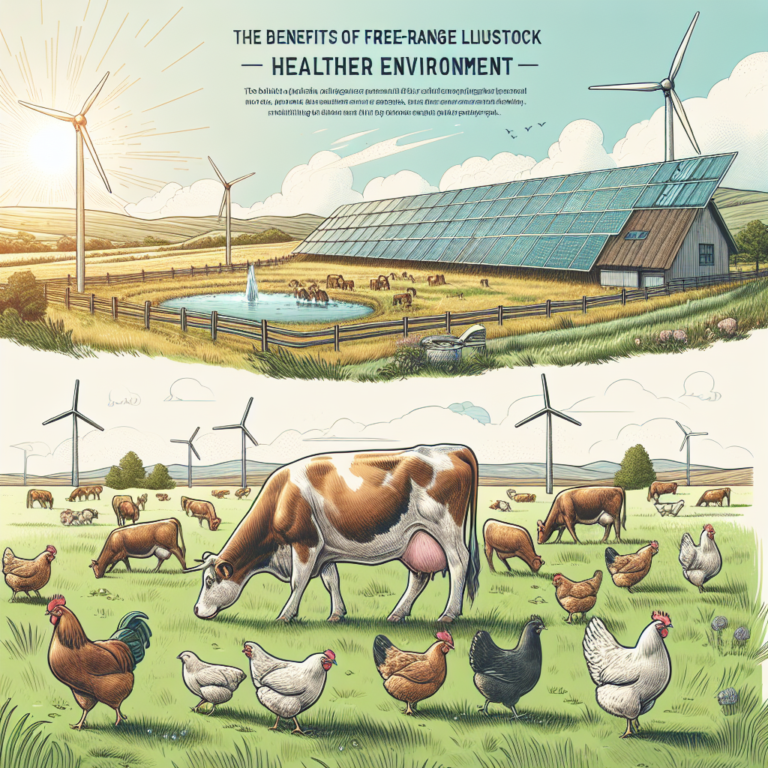In recent years, there has been a growing trend towards consuming products from free-range livestock. This term refers to animals that are raised in conditions where they have ample space to move around, forage for their own food, and engage in natural behaviors. This is in stark contrast to animals raised in confined, industrial operations, where they are often kept in crowded, unsanitary conditions.
There are a number of benefits to raising livestock in a free-range environment, both for the animals themselves and for the environment as a whole. One of the most obvious benefits of free-range livestock is that the animals are generally healthier and happier. When animals are allowed to roam freely and engage in natural behaviors, they are less likely to become stressed or sick. This can lead to a reduced need for antibiotics and other medications, which can in turn reduce the risk of antibiotic resistance and other health concerns.
Not only are free-range animals healthier, but they also tend to produce higher quality products. For example, free-range chickens that are allowed to roam and forage for insects and plants produce eggs that are higher in nutrients such as omega-3 fatty acids and vitamin D. Similarly, grass-fed cattle produce meat that is lower in saturated fats and higher in beneficial nutrients such as omega-3 fatty acids and conjugated linoleic acid (CLA).
In addition to the benefits for the animals themselves, raising livestock in a free-range environment can also have positive impacts on the environment. For example, animals that are allowed to graze on pasture can help to improve soil health and reduce erosion. Grazing animals can also help to control invasive plant species and promote biodiversity in the ecosystem.
Furthermore, free-range farming practices are typically more sustainable than industrial farming methods. For example, free-range livestock often require less fossil fuel inputs and produce lower levels of greenhouse gas emissions. Additionally, animals that are raised in a free-range environment are often able to recycle nutrients more efficiently, reducing the need for synthetic fertilizers.
Overall, there are numerous benefits to raising livestock in a free-range environment, both for the animals themselves and for the environment. By supporting farmers who practice free-range farming methods, consumers can help to promote animal welfare, improve the quality of the food they eat, and reduce their environmental impact. It is clear that free-range farming is not only better for the animals, but also benefits us all in the long run.
